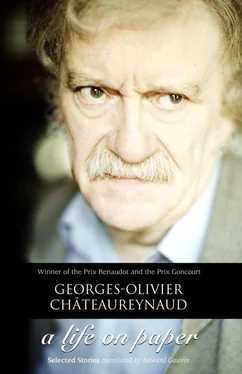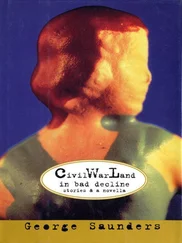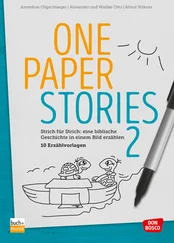Georges-Olivier Chateaureynaud - A Life on Paper - Stories
Здесь есть возможность читать онлайн «Georges-Olivier Chateaureynaud - A Life on Paper - Stories» весь текст электронной книги совершенно бесплатно (целиком полную версию без сокращений). В некоторых случаях можно слушать аудио, скачать через торрент в формате fb2 и присутствует краткое содержание. Год выпуска: 2010, Жанр: Современная проза, на английском языке. Описание произведения, (предисловие) а так же отзывы посетителей доступны на портале библиотеки ЛибКат.
- Название:A Life on Paper: Stories
- Автор:
- Жанр:
- Год:2010
- ISBN:нет данных
- Рейтинг книги:4 / 5. Голосов: 1
-
Избранное:Добавить в избранное
- Отзывы:
-
Ваша оценка:
- 80
- 1
- 2
- 3
- 4
- 5
A Life on Paper: Stories: краткое содержание, описание и аннотация
Предлагаем к чтению аннотацию, описание, краткое содержание или предисловие (зависит от того, что написал сам автор книги «A Life on Paper: Stories»). Если вы не нашли необходимую информацию о книге — напишите в комментариях, мы постараемся отыскать её.
A Life on Paper
A Life on Paper: Stories — читать онлайн бесплатно полную книгу (весь текст) целиком
Ниже представлен текст книги, разбитый по страницам. Система сохранения места последней прочитанной страницы, позволяет с удобством читать онлайн бесплатно книгу «A Life on Paper: Stories», без необходимости каждый раз заново искать на чём Вы остановились. Поставьте закладку, и сможете в любой момент перейти на страницу, на которой закончили чтение.
Интервал:
Закладка:
An ambulance siren brutally yanked him from his reflections. Photo in hand, he ran to the window. That was it, it had come for him; all this was of a piece: the blue and white van with its garish flashing lights and electric shrieking, and the photo showing him and Hostia cheek to cheek and belly to belly. His calling was reduced to an eccentricity and his loves to casual encounters. The ambulance parked in front of the museum. Two men sprang out and hurried around the back of the vehicle, which they opened to pull out a stretcher. Dorsay realized that if he remained standing here like a stick-in-the-mud, in two minutes they'd come and take him away on that stretcher despite his protests. He thought he heard, closing on him in succession, the doors of the ambulance, then the hospital, then the common room where they'd coop him up with actual patients suffering from disgusting, terrifying actual diseases… He tore out of the director's office.
Much later, when Dorsay ventured out of his broom closet, he saw that night had fallen and the museum was closed. At night, the building was placed under the surveillance of a single soused watchman. Curled up at the back of a booth wallpapered with truck photos, he was sleeping with his head on arms crossed atop a table, his slumber shot through with terrible visions. Sometimes he woke with a cry. Then he remained upright for a moment, wide-eyed and covered in sweat, before plunging in again like a man fishing for horrors. It went without saying he was no bother to Dorsay, who borrowed his flashlight and visited the rooms of the museum one by one. These explorations confirmed all his suspicions. He came back down embittered from the attic, where all the pains and humiliations that lay ahead in his final days were evoked. It was one thing to know what abyss we were all drifting toward, and another to see ourselves sinking there through letters, documents, photos, and objects testifying to our decline. The poet's cane, his hearing aid, his supporter underwear. Worse yet, the exhibit didn't settle that obscene question no creator could evade: would posterity remember his name? This museum-absurd, in posse, or prematurelimited itself to recounting the life of Jean-Pierre Dorsay. Nothing in the heaps of relics it held led him to suppose that they would be worshipped one day. Still, he hadn't hesitated to look for the slightest trace of the survival of his body of work after his death, which he now knew down to the day and hour, reasonably distant in and of themselves… Emptying the file cabinets, upending boxes, he'd tracked the posthumous reprinting, the theses, the redeeming essays, the least article that would acknowledge him. In vain. The period covered by the Dorsay collection stopped short at the date of his death. When at last he was convinced no evidence existed, hope returned. No hand had yet been played. His adventure had but pushed back by a few years the lid of smoke or fog that kept all mortals from seeing the future. Someday, in a few hundred or even few thousand lofty souls, his name might awaken the same fraternal impulse he always felt on hearing those of his favorite poets. Nothing guaranteed it, but nothing ruled it out. The idea perked him up considerably. As a result, other curiosities came back to him. Since he hadn't reached the end of the road, would he write again, love again, before the distressing deadlines of the attic? He began emptying drawers and cabinets again, without finding anything at first. Finally, as he was losing hope, his gaze fell on a black and white photo quite similar to the one that showed him in Hostia's arms. But it wasn't Hostia nestled up against him, nor any of the other women in his past. Nor was it a stranger. In fact, he had met her this morning for the first time in his life. It was the young woman come from the provinces to help her aunt at the hotel, the girl with rosy cheeks who'd stepped out of an English print. Dorsay's heart filled with joy. If life still had such a godsend in store, then he wanted to face it once more, with its gray vagaries and black certainties.
He slipped the photo under his shirt and made his way back to the closet where the watchman was moaning in his sleep.
"Wake up! Good God, wake up!"
"Huh? What? Who are you?" The man's eyes widened at this apparition, for once not even monstrous.
"A visitor. I didn't notice what time it was; you have to let me out, I want to go home!"
The poor lout did as he said without being asked twice.
"Good night!" Dorsay yelled back from the bottom of the steps.
"Good night, yeah right!" the watchman grumbled.
He locked the monumental door and drew back into the depths of the museum to pick up the thread of his nightmares again, as a reader might get back to a book.
The night was clear and cold. Dorsay crossed the street, skirting the pedestal of the bronze schoolboy. The Museum Hotel was still open. He walked in. The hotelkeeper welcomed him with a surprise not entirely free of suspicion. A traveler without bags who slept in the same place twice: what was he hiding?
"I'll pay in advance, like last night," he told her.
"As you wish," she replied, relieved.
He didn't have enough cash on him. He paid with a debit card.
"I'm going to go out and have a bite before bed."
"There are hardly any restaurants in the neighborhood. I can bring a meal tray up to your room."
He wondered what it would consist of. Parma ham, salmon steak, apple pie? In truth, he felt ready to devour almost anything.
"And wine, too, please-white."
"Chablis?"
"Chablis."
"Very good, sir. I'll bring it up in half an hour?"
"Perfect. Um… your niece isn't here, is she? Maybe she stepped out?"
The hotelkeeper looked him up and down with an icy eye, all her prejudices instantly restored. What did this fellow want with the girl? "My niece?"
"Yes, the young lady I saw this morning. She's quite friendly!"
"She's only here in the daytime"
"Ah! So I'll have the pleasure of seeing her again tomorrow morning, then… Make sure the Chablis is nice and chilled, won't you?"
"I will. I keep it in the fridge."
As he slipped his key into the door to his room-305, the same as last night-Dorsay let out a victorious little laugh. The old lady could wrinkle her nose all she wanted; the girl with the rosy cheeks would inevitably be his. It was written-or rather, photographed!
He walked in, hung his raincoat and his blazer in the closet, kicked off his shoes. On his breast, between shirt and undershirt, the photo rustled. He undid two buttons and removed it carefully from its hiding place. He gazed upon it. The young woman was beautifulso beautiful! And he was… well, less handsome, of course, and not as young, but as though transfigured by the brilliance of his companion, regenerated by her grace. He pulled the bedspread back and hid the photo under the pillow. The meal was in… half an hour? He had time for a bath. He turned on the tap. While the water ran, he walked to the window. He drew back the curtains. In the moonlight, with a gaze turned directly on him, the bronze schoolboy was smiling.
Lozere, December I994-January 1995
The Pavilion and the Linden
 pon his return from a war in the course of which he had, as was his custom, defeated many an enemy and reduced many a citadel to gravel and ash, King Guita wished to take the air beneath a certain aged pavilion. In the most solitary courtyard of the palace it stood, of simple stone, its floor adorned by a mosaic of no great originality. No legend clung to its grounds. A linden hung over the pavilion, whose furnishings in their entirety consisted of a single wooden bench. In his now-distant childhood days, King Guita had spent many a long and easy evening there, playing in the wan scent of lime at his governess' feet.
pon his return from a war in the course of which he had, as was his custom, defeated many an enemy and reduced many a citadel to gravel and ash, King Guita wished to take the air beneath a certain aged pavilion. In the most solitary courtyard of the palace it stood, of simple stone, its floor adorned by a mosaic of no great originality. No legend clung to its grounds. A linden hung over the pavilion, whose furnishings in their entirety consisted of a single wooden bench. In his now-distant childhood days, King Guita had spent many a long and easy evening there, playing in the wan scent of lime at his governess' feet.
Интервал:
Закладка:
Похожие книги на «A Life on Paper: Stories»
Представляем Вашему вниманию похожие книги на «A Life on Paper: Stories» списком для выбора. Мы отобрали схожую по названию и смыслу литературу в надежде предоставить читателям больше вариантов отыскать новые, интересные, ещё непрочитанные произведения.
Обсуждение, отзывы о книге «A Life on Paper: Stories» и просто собственные мнения читателей. Оставьте ваши комментарии, напишите, что Вы думаете о произведении, его смысле или главных героях. Укажите что конкретно понравилось, а что нет, и почему Вы так считаете.












